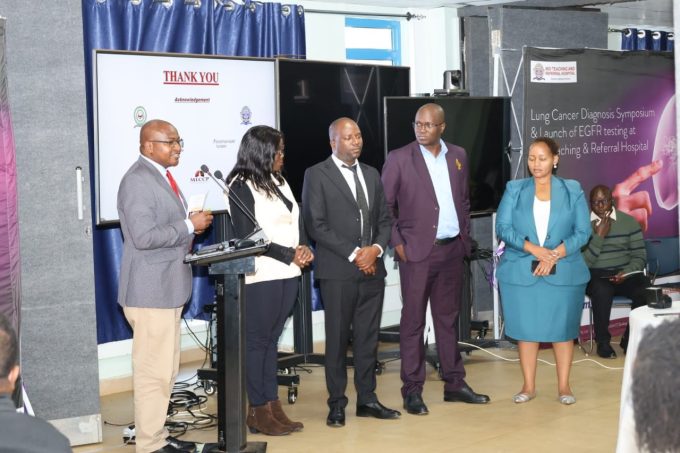Scientists in Case Western University school of medicine have revealed that blocking two molecular pathways that sends signals inside cancer cells could prevent esophageal adenocarcinoma (EAC).
Esophageal cancer occurs when malignant tumor grow in the lining of the food pipe affecting the deep tissue and muscle of the esophagus.
The research published in Gasroenterology journal spot two signaling pathway that are controlled by JNK and TGF-beta proteins contributing to the tumors.
The EAC tumors are reported to be resistant to chemotherapy and they have limited treatment to shrink the malignant cells.
However, the scientist have discovered that the effects of the pathways can be reduced by turning down JNK or TGF-beta activity.
“These revelation suggest rationale for testing JNK/TGF- beta-targeted therapies as a new treatment approach in this increasingly preventable lethal cancer,” said Kishore Guda the senior author of the study.
Read: 80 health facilities under probe over fraud at NHIF
The researchers distinguished the pathways using advanced computational and genetic analysis of tumor biopsies from EAC patients.
The World Health Organization, in 2018, named esophageal cancer as the leading killer in the country.
Kenya is among few countries in the world with highest reported cases of esophageal cancer.
The food pipe cancer caused about 4,354 deaths last year.
Increases cases of the cancer are however being reported in the Eastern part of the country among the young people aged 30 years and below.
See also: Innovative financing for universal health care
Endoscopies being done in health centres reveal that three out of five examination of the digestive tract done turning out positive on esophageal cancer.
The cancer of food pipe is said to be very common in the Rift Valley due to volcanic soils, tobacco chewing or smoking and Mursik (fermented milk with ash) diet.
Early signs of food pipe cancer include, difficult in swallowing, weight loss, heartburn, chest pain and coughing.
Nonetheless, the new study opens a new targeted therapeutic avenue for EAC.













1 Comment